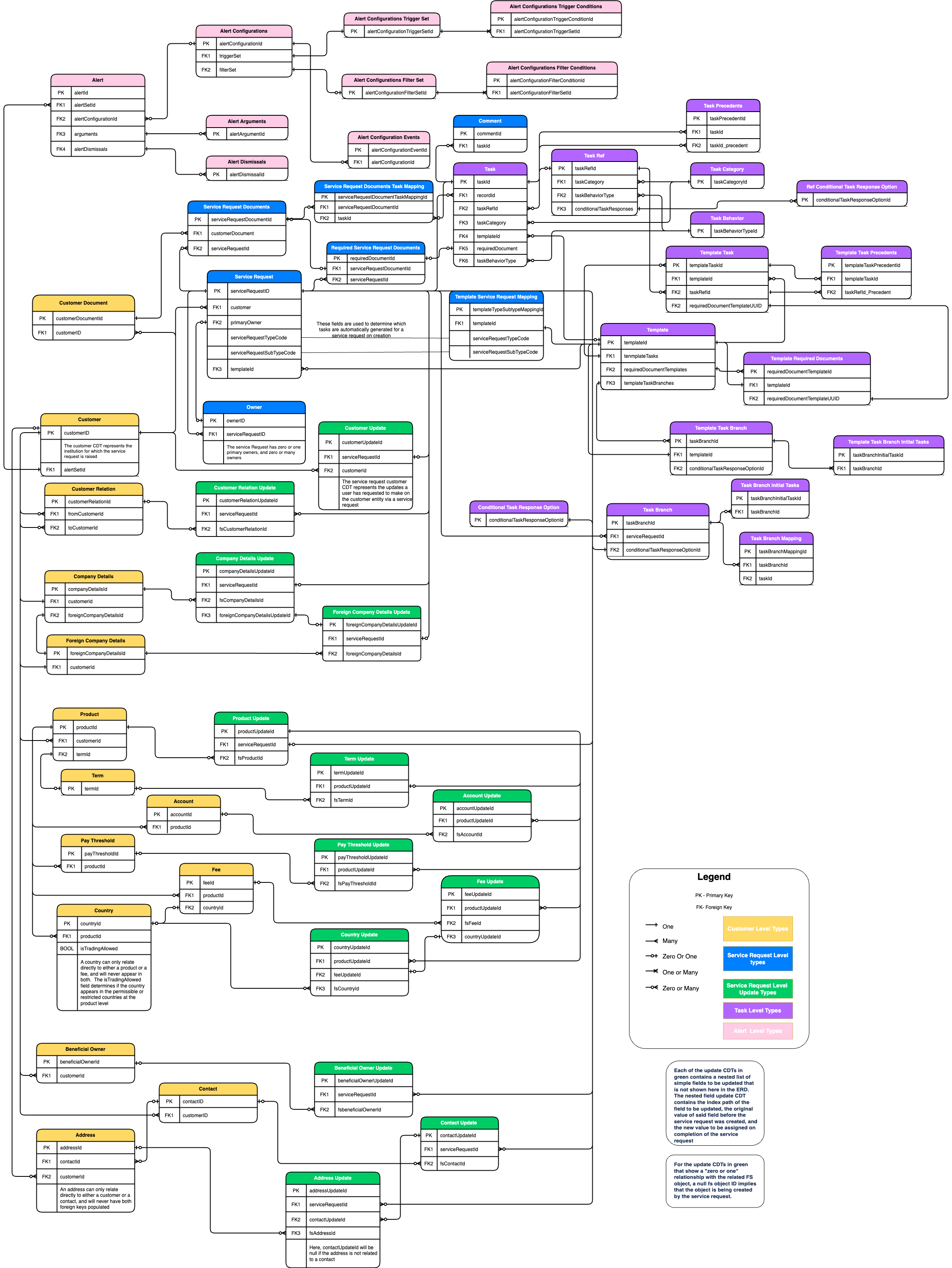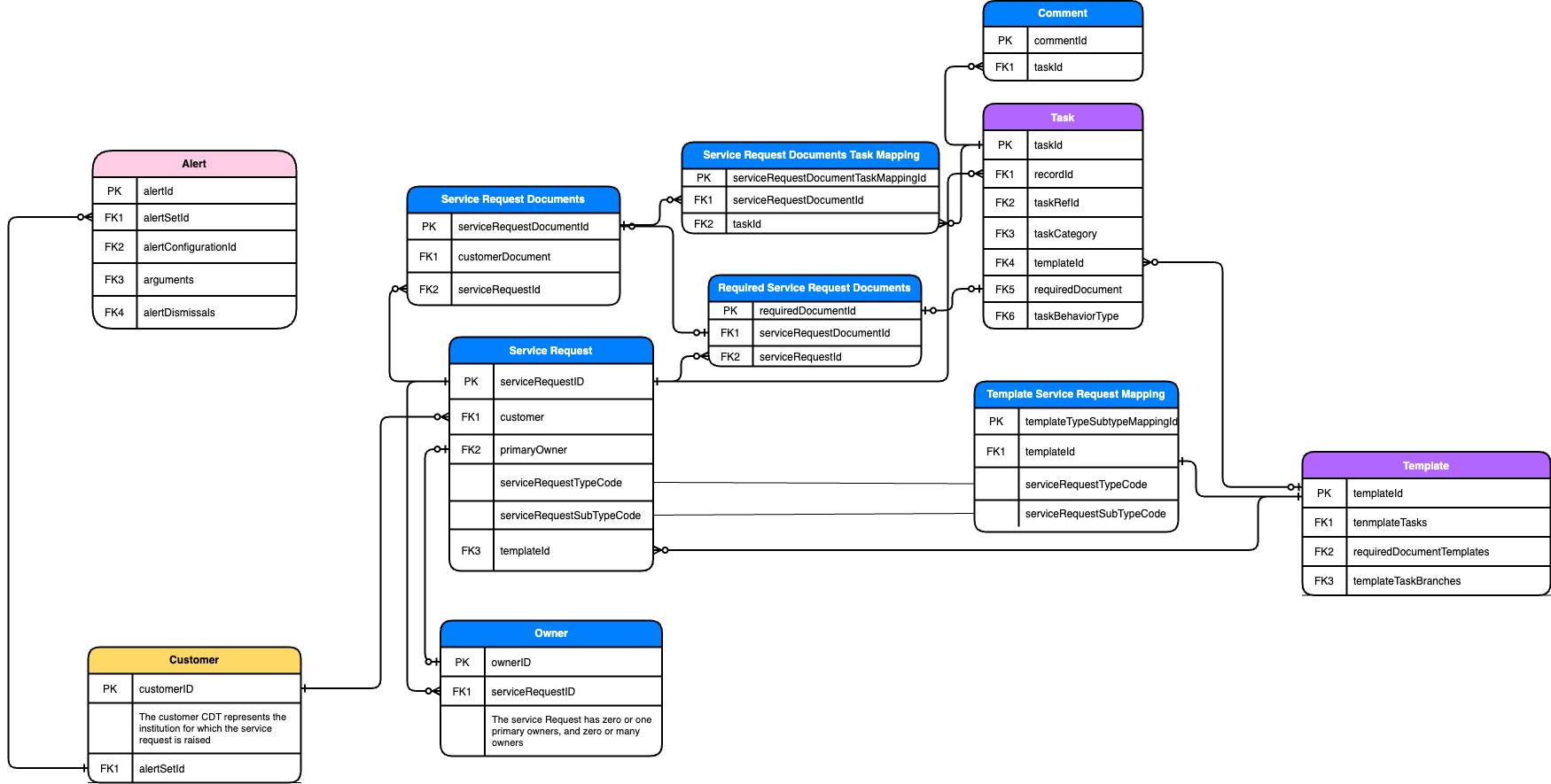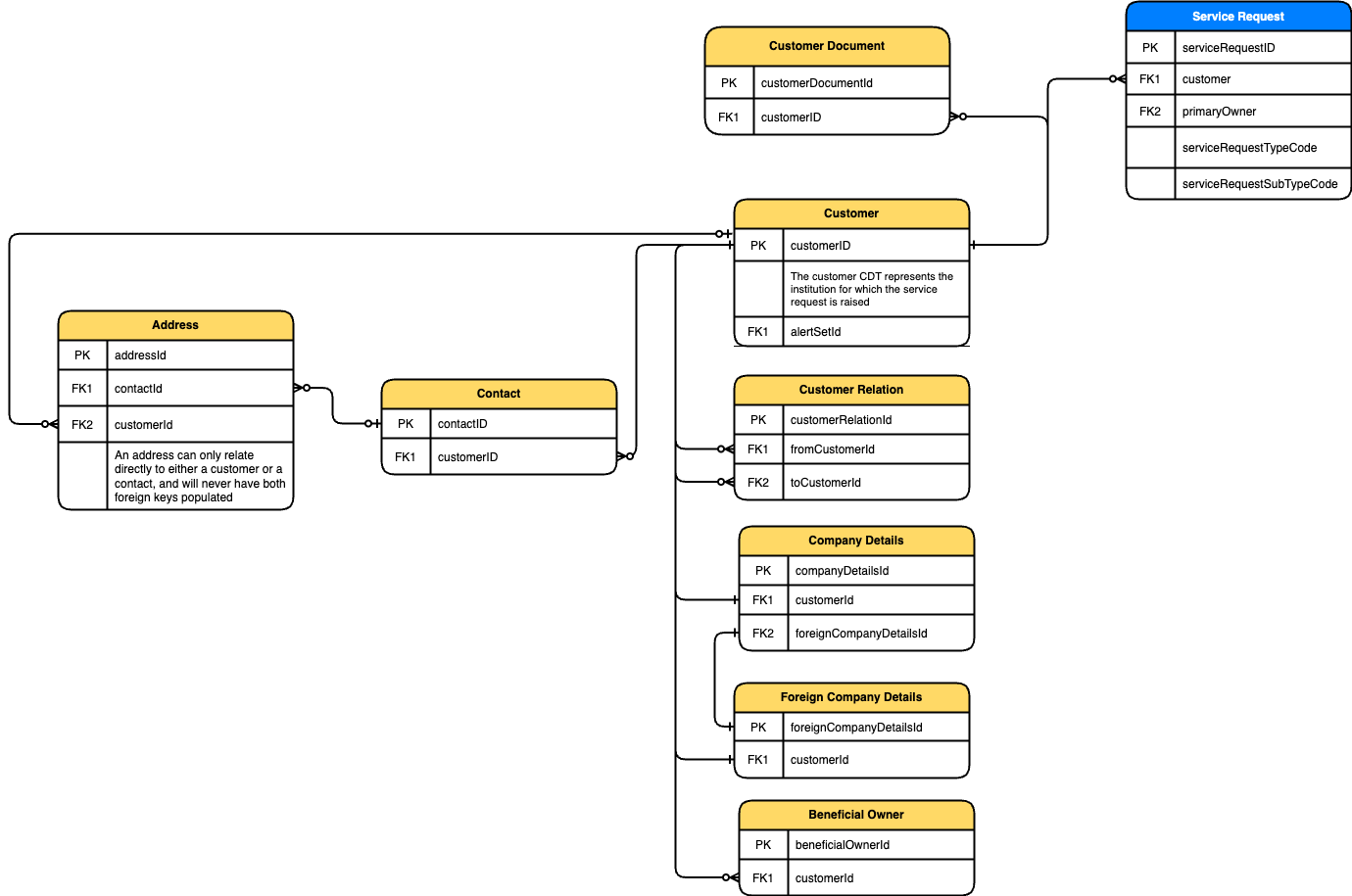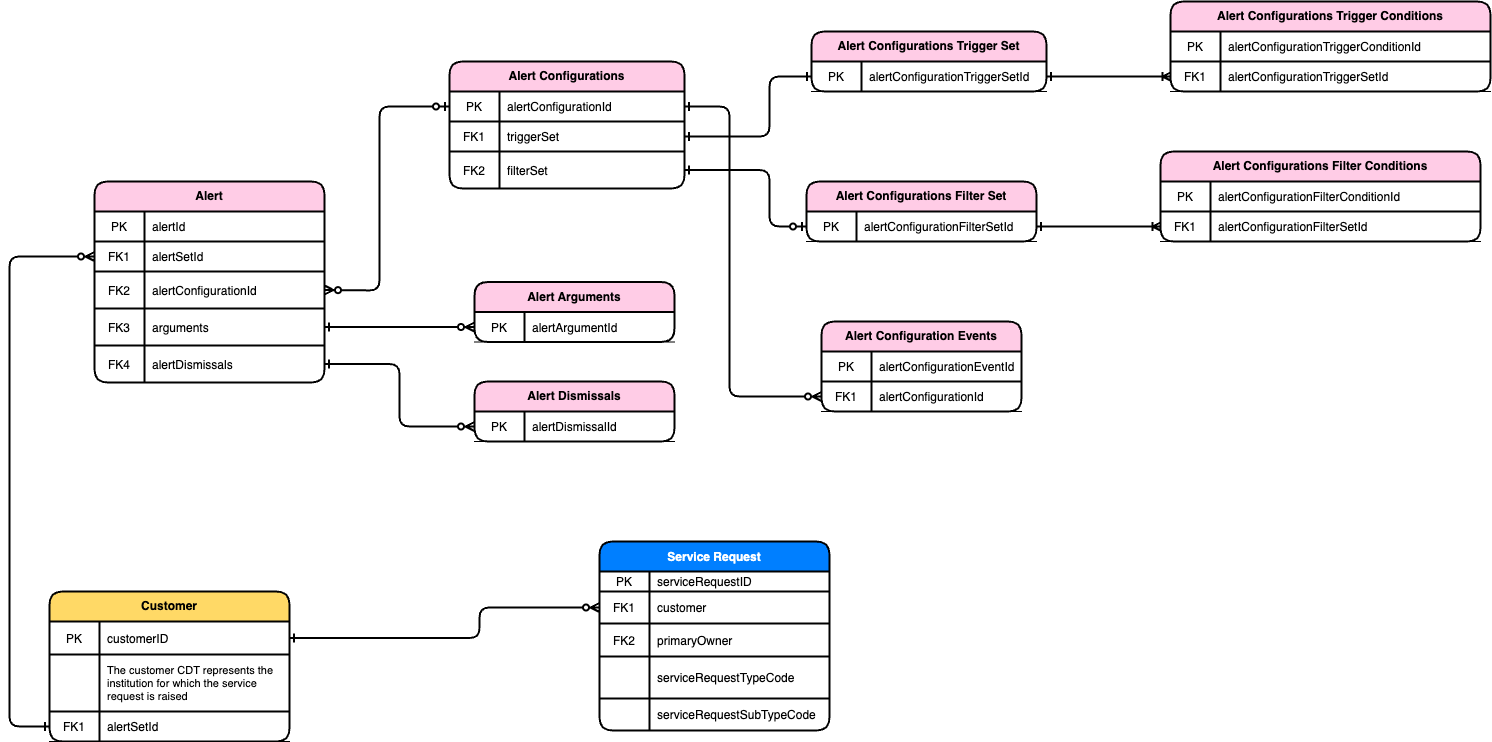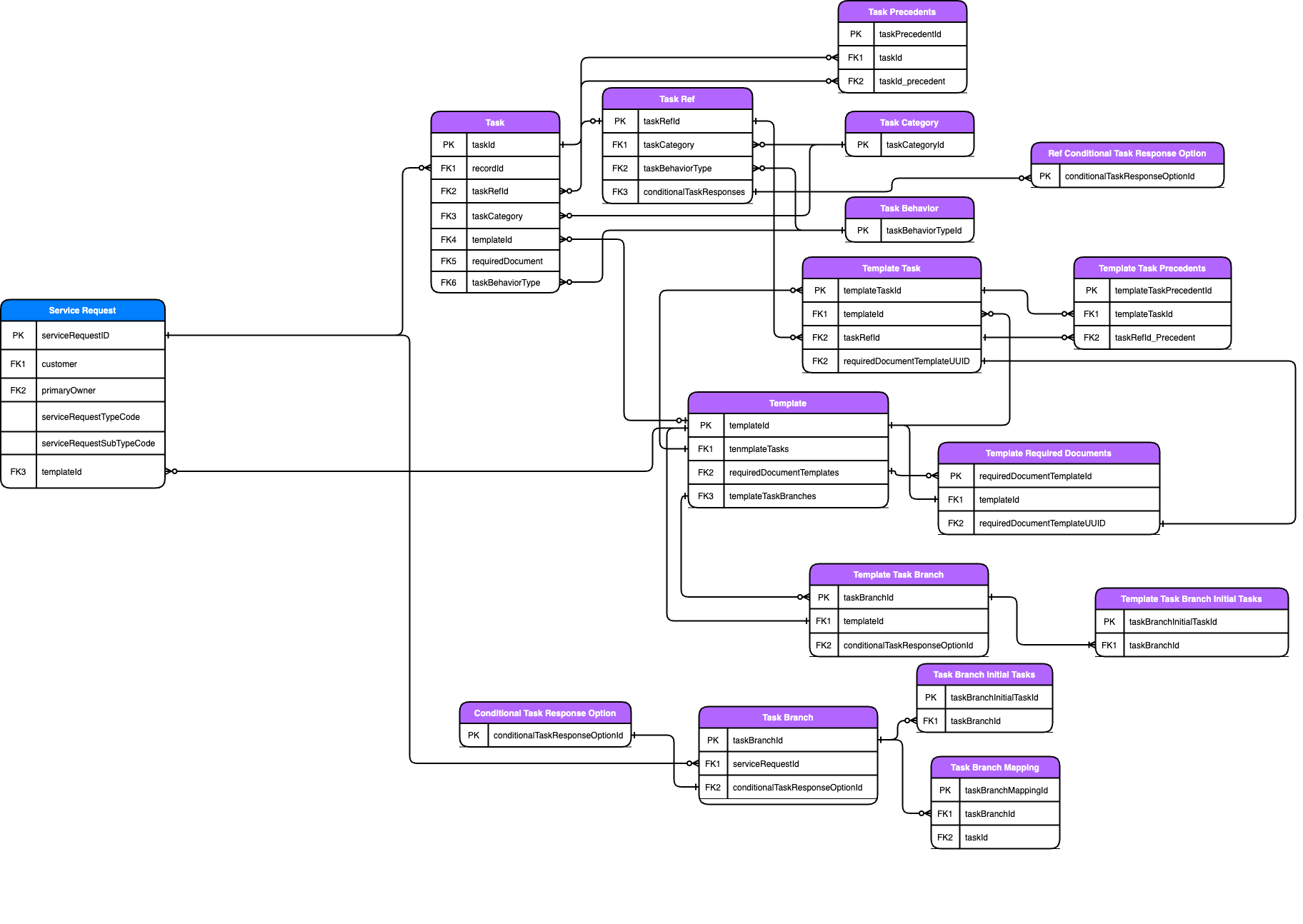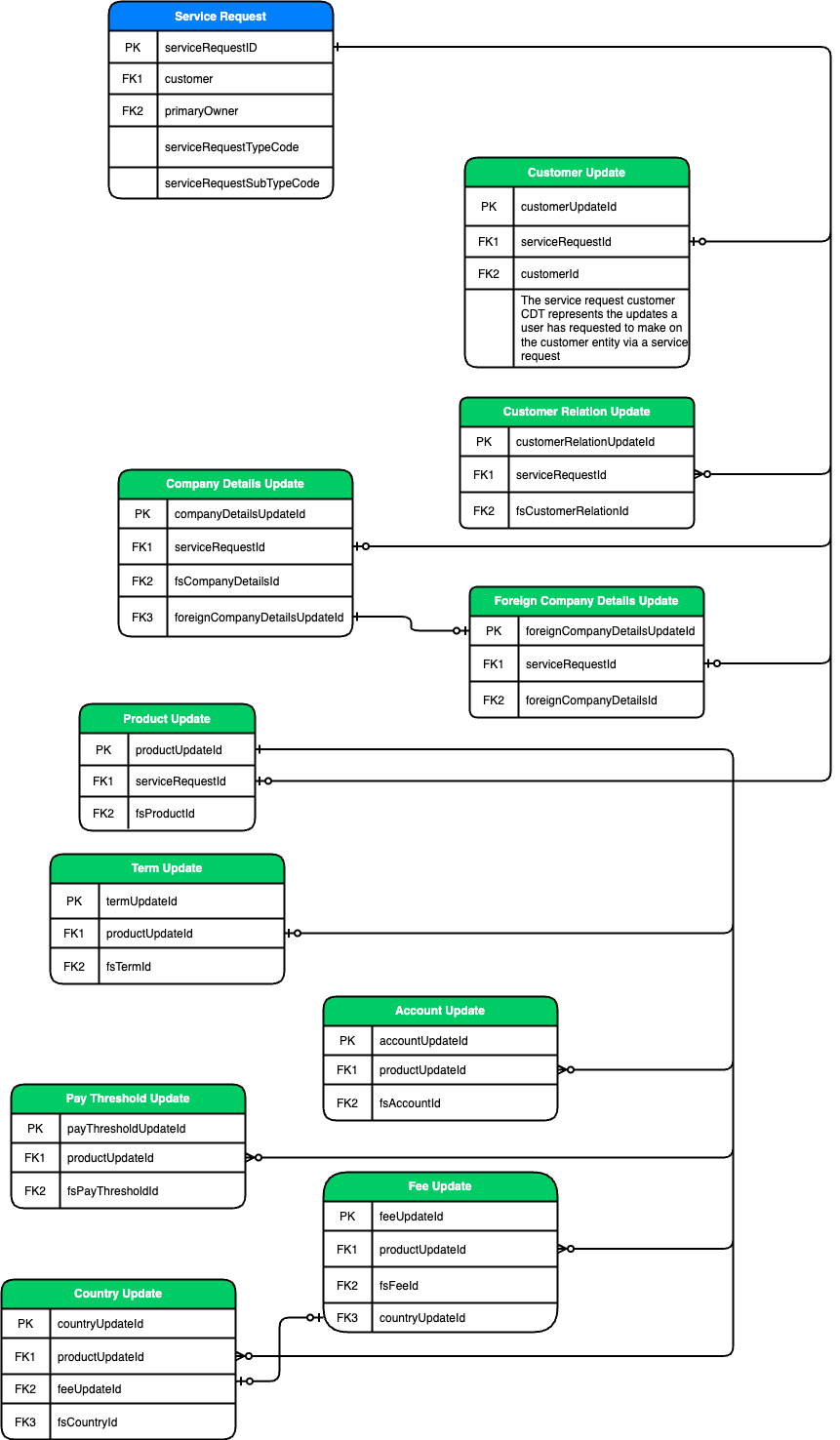| This content applies solely to Connected Servicing, which must be purchased separately from the Appian base platform. This content was written for Appian 23.3 and may not reflect the interfaces or functionality of other Appian versions. |
IntroductionCopy link to clipboard
The primary custom data types and database entities in Connected Servicing are associated with customers, service requests, and tasks. Understanding how these entities relate to each other can help you understand the way the data in the solution works together.
The entity relationship diagrams (ERDs) shown illustrate the main entities used in Connected Servicing and their relationships to each other.
Entity Relationship DiagramsCopy link to clipboard
The first ERD diagram provides a granular view of the main relationships for Service Requests. Reference this diagram when you need to how all the data in the solution connects and relates to each other. Additionally, this view provides a graphical overview of the tables used for the reference list of all Service Requests in the Connected Servicing solution.
Service Request ERDCopy link to clipboard
This ERD illustrates the main relationships Service Requests have with the parent CDTs for Customer, Task, and Alert.
Service Request and Customer ERDCopy link to clipboard
This ERD illustrates the relationship between the Service Requests CDT and the Customer parent and child CDTs.
Service Request and Alert ERDCopy link to clipboard
This ERD illustrates the main relationship between the Service Requests CDT and the Alert parent and child CDTs.
Service Request and Task ERDCopy link to clipboard
This ERD illustrates the main relationship between the Service Requests CDT and Task parent and child CDTs.
Service Request and Service Request Level Update Types ERDCopy link to clipboard
This ERD illustrates the main relationship between the Service Requests CDT and the parent and child CDTs for the Service Request Level Update Types.

